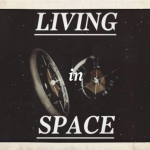Technology
I was just reading this analysis of costs and profits of the iPhone, and it's rather dismaying. It's largely about how the costs are distributed: the iPhone is assembled in China, and contributes to our trade imbalance, but it's not because China has a technological edge — all the components are made in Japan, Korea, Germany, and the US, and just shipped to China for the final assembly by the cheap labor there.
The total component cost of an iPhone in 2009 was $172.46. Workers in China assemble the iPhone, but because their wages are low the assembly cost per phone (labeled manufacturing…
One of the hardest things for people to get their heads around is the fact that just because we can do something doesn't mean we will. For affluent people in the west in an era of rising energy availability, for the most part can and do went together. In an era of declining resource availability and declining wealth, however, many of us are likely to get to know the experience of much of the world, which is that what we can do doesn't have much to do with many people's experience..
One of the hardest concepts for many Americans to absorb is this - that technical feasibility rests on a…
I don't think my point quite got across the other day, so let me try phrasing this another way. I think a lot of what's being written about pseudonymity on blogs is missing the real point.
The really important question here is not so much whether blog networks should allow pseudonymous blogs as whether employers should allow their employees to blog about what they do in their day jobs. Things like the much-cited Epi-Ren case are not really evidence of the risk of blogging under your own name, they're evidence of the risk of blogging when your employer doesn't want you to.
Pseudonymity is a…
Ever wondered what the bottom of the ocean looks like? Well, now's your chance to check out streaming live HD footage from the ROV ROPOS which is currently working out at Axial Volcano on the Juan de Fuca Ridge. Currently they are checking out a brand new lava flow, but later this evening and tomorrow they will be working at Ashes hydrothermal vent field (one of my study sites). While not all of the work is microbe-related (there is a lot of geology going on), the fact that they are streaming live and sharing audio conversations with other scientists on land was too cool to share. Also,…
The whole issue of pseudonymity has come up again, both on Google+ and on ScienceBlogs. While I've been on the Internet for nigh on 20 years, my initial point of entry was through a Usenet group that strongly preferred real names (or something real-name-ish). As a result, I've never tried to maintain a separate Internet name-- all of my Usenet posting and all of my blogging has been under my real name. So I don't have a great deal invested in the question, on a personal level.
There are a couple of points, though, that I think are worth making about the recent discussion:
1) There's a much-…
The Dennis Markuze story has made it to Ars Technica. I am much relieved to have that pest gone from my mailbox, but I was thinking about one point everybody is missing: the human brain seems to have an edge over computers.
I just checked, and the FtB site has accumulated about 2100 spam hits which none of you have seen, but which were automatically intercepted by the software (you aren't missing much: somebody really wants to sell you shoes, lots of shoes). Markuze was hitting me on email and twitter for more than that, and the thing was, those all got past the filters I've got in place. So…
Back in June, when I was headed to DAMOP, I got email telling me that they had an official Android app. I installed it, and in with the meeting program and maps and things was a "Social Media" section, that included an official hashtag: #apsdamop.
I posted a few things using it, but it rapidly became clear that there was only one other person at the meeting using it. I happen to know him, so when I ran into him later at the poster session, I commented on how we were the only people at the meeting using the official Twitter hashtag. Someone else nearby looked baffled, and we had to explain.…
A little more tab clearance: these are stories about the transformation of publishing that I've been meaning to say something about but haven't got around to.
First, some actual news: rumors of the imminent death of publishing may be somewhat exaggerated, as more books were sold for more money in 2010 than in a while.
Of course, that doesn't make Borders any less dead, so here are a couple of eulogies: from Dean Dad and Jeff Mariotte (the latter hosted by Borders so, you know, read it soon before it disappears).
If you remain convinced that traditional publishing is going the way of the…
As you have undoubtedly heard from sources more overtly journalistic than this one, SETI is back online!
After federal and state financial cutbacks forced the institute's shiny new Allen Telescope Array (ATA) into indefinite hibernation earlier this year, cosmically-minded geeks all over the globe donated money in droves, bringing the search for extraterrestrial life back from oblivion. Over $200,000 in donations from thousands of fans -- including Contact's own Jodie Foster, science-fiction writer Larry Niven, and Apollo 8 Astronaut Bill Anders -- will get science operations up and running…
A well-known joke is "Rule 34" saying that anything that exists will have porn about it on the Internet. The introduction to this Inside Higher Ed piece about anti-law-school blogs reminds me that we probably need a higher-numbered rule stating that every field of human endeavor will also produce a bunch of blogs about how much it sucks.
It's an important principle to keep in mind when trying to learn about anything on the Internet.
This is a small piece of a larger — much larger — photo of a Vancouver street crowd. Go to the original image, though, which allows you zoom in and in and in — you'll be able to see the faces in surprising detail of each of the little dots.
The Vancouver Canucks Fan Zone along Georgia St. for Game 7 of the 2011 Stanley Cup Final was captured at 5:46 pm on June 15, 2011. It is made up of 216 photos (12 across by 18 down) stitched together, taken over a 15-minute span, and is not supposed to represent a single moment in time. The final hi-res file is 69,394 X 30,420 pixels or 2,110 megapixels…
In the old days, canals, roads, train tracks, etc. were almost all privately owned in many countries. Some airports too, but not many. Now, most of these elements of our infrastructure are publicly owned or so regulated that they may as well be. Same with utilities.
I wrote a while ago about how Amazon Dot Com is a public good that should not be privately controlled. A lot of people got mad at me and pointed out how wrong I was, but that is because they did not understand that the vast majority of on line commerce is actually run by Amazon even though you don't know that while you are…
In the mid-1970s, the U.S. State Department prohibited the internal use of the term "space colony," due to the global bad reputation of colonialism. Instead, the government opted for "space settlement." Of course, as Stewart Brand pointed out at the time, the last thing you do in space is settle. Quite the opposite! Making the decision to explore space -- and live there -- is just about the most unsettled act a human can commit.
There have always been two camps on this issue. First, the unsettled, like Brand: the science-fiction aficionados, capitalists, rocketry geeks, macrocosmic thinkers,…
Lawrence Krauss has written an excellent defense of the James Webb Space Telescope, the successor to Hubble which is currently under threat of cancellation. I was really down on the space shuttle the other day, but that's because I think it was a failure at doing its job of enabling exploration and discovery — the Space Telescope is a fabulous tool that works, and I want NASA to focus more on cost-effective, powerful methods of exploring the universe.
Lawrence Krauss also criticized the space shuttle, and urges us to send more robots into space. Uh-oh. Cue ominous music as Neil deGrasse…
It's so good to see someone take off the rose-colored glasses and tell it like it is: the space shuttle was a flop.
The most important thing to realize about the space shuttle program is that it is objectively a failure. The shuttle was billed as a reusable craft that could frequently, safely, and cheaply bring people and payloads to low Earth orbit. NASA originally said the shuttles could handle 65 launches per year; the most launches it actually did in a year was nine; over the life of the program, it averaged five per year. NASA predicted each shuttle launch would cost $50 million; they…
Fed by the news media, our fascination and reverence for celebrities has reached shameless heights.
But when you add the element of royalty to the mix, celebrity worship can take off into the stratosphere, triggered even by an item as seemingly mundane as a dress.
This leaves me wondering -- and angered -- over what is happening to us and our priorities.
I'm referring most recently to the whirlwind North American tour this month of newly weds Prince William and Duchess Kate Middleton (a.k.a. Catherine, the Duchess of Cambridge), who seem to be a wonderful couple committed to fostering…
Google has announced that it will "wind down" Google Labs. This is disappointing given the power of these tools for teaching and research, not to mention that using these applications is just plain fun.
I hope that Mr. Coughran at Google honors his statement that "we'll incorporate Labs products and technologies into different product areas." It is particularly important that these applications be available freely to the public.
From PC World:
During the company's most recent earnings conference call, co-founder Larry Page, who took over as CEO in April, said that the company was in the…
A lot of pixels have been spilled lamenting the death of Borders books, a rather large fraction of them being used to say stupid things. Particularly in the "they killed off independent bookstores so good riddance to them" vein-- it's great that you lived in a place that had good indie bookstores and enough hipsters to support them, but for large swaths of the country, the big-box chains were the best thing ever to happen to readers. Going from a cramped little B. Waldencrown in the local mall to a full-size Borders or Barnes and Noble store was a world-changing experience for a lot of people…
I think the loony Christian apologist has got something right. He has identified the greatest threat to Christianity:
The Internet has given atheists, agnostics, skeptics, the people who like to destroy everything that you and I believe, the almost equal access to your kids as your youth pastor and you have... whether you like it or not.
Hooray for the internet!
Now here is the problem, going all the way back, when Al Gore invented the Internet [he said jokingly], I made the statement off and on for 10-11 years that the abundance of knowledge, the abundance of information, will not lead to…
silverlinedwinnebago's Flickr photostream
Some of the happiest people in the world come home smelling to high heaven at the end of the day.
"Bruce Almighty" (2003)
Job growth reigns supreme amongst political discussion. Where will we find these future jobs and how do we prepare for them?
Charles Blow's recent Op-Ed article in The New York Times, "They, Too, Sing America" discusses some compelling data from the Bureau of Labor Statistics. Job opportunities for the next decade may surprise you.
They are women whose skin glistens from steam and sweat, whose hands stay damp from being…



